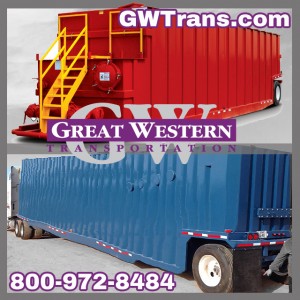Many companies import products and components into the United States every year. These importers must arrange to have their cargo transported from the port to a storage facility, processing center or retail outlet. Some own and operate their own fleet for this purpose, others outsource to a logistics company. In either instance, there are three things that every importer should know about picking up cargo at the port.
TWIC Requirements
Truck drivers, dock workers, maritime workers and anyone else that has access to secure areas of ports and vessels are required to obtain a Transportation Worker Identification Credential (TWIC). This is a tamper-proof identification card that must be carried at all times. The credential holder must present the card in order to gain access. This card is only issued to U.S. Residents and certain immigrants that pass the security background check. Truck drivers who do not have, or carry, their credential card will be denied access, therefore, delaying the pickup process.
Long Wait Times
During peak times of the day, many ships arrive in port at the same time. Their cargo must be unloaded and disbursed to the various carriers and independent trucking companies charged with picking them up. Those that are very familiar with the process understand that drivers may spend a great deal of time waiting for their cargo to be unloaded. It is unwise for an importer to expect that their cargo will be expedited, since loads are often managed on a first-come, first-served basis. Therefore, these companies should plan their ordering and delivery schedules to accommodate the variations in the amount of time it takes to have their cargo unloaded.
Port Congestion
It’s no surprise that larger ports are extremely busy places. There are a multitude of different vehicles on the property at any given time, which can lead to problems maneuvering large equipment such as semi-trucks and trailers. The seemingly simple act of hooking up to a trailer can take several minutes to accomplish. Drivers must be highly-trained in this type of activity in order to avoid accidents, which can cause extensive damage and costly delays. It’s also vitally important that they are confident in their own skills and diligent in their observations of what is going on around them.
If your company imports cargo, be well aware that drivers must have adequate credentials to access sensitive areas at ports. Also understand that there are often delays due to high volumes of traffic, which makes it more difficult to maneuver large trucks and trailers. Understanding these issues will help you to make the right decisions for yourself, your drivers and your company. Ultimately, this will improve your operations, decrease your expenses and increase your profit margins.





